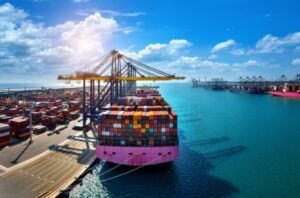In the context of modern business, global operations refer to actions carried out across national boundaries in search of market opportunities, productivity gains, and competitive advantages. This broad approach is essential for maintaining range, building brand recognition, boosting sales, and supporting model-to-market dynamics.
On the other hand, international logistics involves the challenging management and synchronization of sources to enable the smooth flow of commodities across national boundaries. This broad field includes planning logistics, shipping, warehousing, and transportation across several public settings, icing the smooth inflow of goods despite different nonsupervisory fabrics and logistical obstacles. For more information, you can visit this link: https://www.dhl.com/discover/en-vn.
The Nexus of Global Operations and International Logistics
The synergy between global operations and worldwide logistics is pivotal in the latest interconnected international, underpinning the facilitation of alternate and the transportation of goods across borders. This symbiotic relationship now not only fosters monetary growth but also nurtures global collaboration and connectivity.
Essential Components of International Logistics
Transportation and Distribution: These serve as the lifelines of worldwide trade, connecting producers and clients throughout good-sized distances. Efficient transportation and distribution networks are imperative for ensuring the timely and reliable delivery of products, thereby influencing product marketability and normal profitability.
Inventory Management: Central to effective enterprise operations, inventory control includes the meticulous tracking and manipulation of stocked goods. By optimizing inventory ranges and streamlining replenishment approaches, groups can meet consumer demands efficaciously, thereby enhancing operational performance and financial performance.
Supply Chain Management: Supply chain management encompasses the seamless orchestration of product float, from raw fabric procurement to final product distribution. A nicely managed supply chain enhances operational performance, reduces overhead costs, ensures well-timed transport, and in the long run complements customer delight.
Logistics Information Systems: These structures function as the spine of efficient delivery chain management, imparting actual-time information analysis and insights. By facilitating inventory manipulation, order processing, and transportation management, logistics facts systems empower companies to streamline operations and make knowledgeable selections.
Strategic Planning in Optimizing Global Operations
A strategic approach is crucial in navigating the complexities of global operations, enabling agencies to adapt to market dynamics, cultural nuances, and regulatory frameworks. Key steps in developing a sturdy international operations strategy include comprehensive marketplace research, compliance with neighbourhood legal guidelines and customs, green logistics control, strategic partnerships, and a continuous model of international traits. Embracing generation is likewise crucial because it enables corporations to leverage records analytics, decorate communique, and foster actual-time selection-making in a global context.
Challenges and Risks in International Logistics
Despite the myriad opportunities supplied through worldwide logistics, groups should navigate numerous challenges and dangers, which include:
Trade Regulations and Restrictions: Governmental guidelines, such as price lists, quotas, and product requirements, can pose significant barriers to international change, hindering marketplace admission and complicating logistics operations.
Cultural and Language Barriers: Cultural differences and language boundaries can hinder powerful verbal exchange and collaboration, probably main to misunderstandings and disruptions in delivery chain operations.

Optimizing Transportation and Distribution in International Logistics
Evaluation of Transportation Options: Businesses need to compare various transportation modes based totally on elements which include value, time performance, reliability, and environmental impact. From traditional modes like avenue, rail, sea, and air shipping to rising answers like experience-sharing and electric motors, each option offers awesome benefits and exchange-offs.
Efficient Distribution Channel Planning: Effective distribution channel planning entails figuring out and making use of the maximum efficient routes for product delivery, from production centres to end customers. By leveraging market insights and logistical expertise, agencies can optimize distribution channels and reduce transportation charges.
Inventory Management and Supply Chain Optimization
Lean Inventory Strategies: Lean inventory strategies purpose to limit waste and optimize inventory degrees by aligning manufacturing with actual demand. By decreasing excess inventory and doing away with inefficiencies, organizations can enhance operational performance and enhance coin flow.
Just-In-Time (JIT) Delivery: JIT shipping systems consciousness of receiving goods most effectively as they’re wanted, thereby minimizing stock protecting charges. While JIT structures provide huge value financial savings, additionally they entail risks related to delivering disruptions and demand variability.
Supply Chain Integration and Coordination: Optimizing operational efficiency and customer satisfaction requires effective supply chain integration and coordination. Businesses may lower lead times, save costs, and enhance service quality by aligning their manufacturing, procurement, and distribution processes.
Conclusion
In the end, international trade and development, overcoming national barriers between producers and consumers, and economic growth all depend on global operations and global logistics. Agencies may successfully navigate a more interconnected world by optimizing their worldwide operations, harnessing the era, and placing a high priority on sustainability and ethics.




















